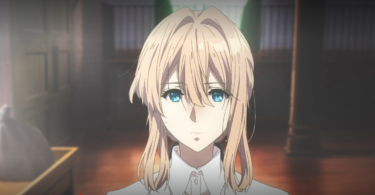SEOUL – The smell of lamb arayes – a popular street food from Jordan – filled the air as I squeezed myself in between hundreds of people, trying to reach some tacos de carnitas from the Mexican food booth.
Behind me were four Mexicanas in colorful Jalisco dress, dancing to the traditional music while performing a baile folklorico – a type of hat dance where dancers swirl their skirts around like waves.
Listen to this article read by the author:
With more than 67 nations participating every year from Mexico to Venezuela to Singapore, the Seoul Friendship Festival last month brought more than 270,000 international and Korean visitors together, organizers said, to experience diverse food and culture.
Hosted by the city of Seoul, the event offers a chance to enjoy traditional performances, authentic dishes prepared by locals, games and clothing. Each booth showcased a country’s uniqueness.
This was my first time attending the Seoul Friendship Festival, and I had expected only a modest number of countries, just enough to qualify as a cultural event, but nothing too overwhelming.
But to my surprise, the moment I stepped onto the plaza, I spotted a group of Korean dancers performing the traditional sword dance Geommu (검무), their swords slicing the air in unison.

Soon after, Maori people from New Zealand took the stage with a haka so powerful that it instantly grabbed everybody’s attention, and each of their stomps synced throughout the performance, leaving people in awe.
Nearby, I heard a loud, “Loteria!” coming from a table.

People were playing loteria, a traditional Mexican game like bingo, but instead of the typical game everyone knows, each square contained a picture of things like “El Sol,” or “La Sirena.”
The game host loudly shouted out each card, and players had to quickly place tokens over the matching images. Whoever was the first one to fill out all 16 squares had to quickly yell “Loteria!” which typically ended with groans by other participants.
For most Korean visitors, including myself, this was their very first encounter with the game. I found myself having to constantly explain that loteria isn’t the popular Japanese burger franchise Lotteria that everybody loves, but instead a word that means “lottery” in Spanish.

Out of these countless experiences that I will never forget, my favorite was that it wasn’t just a chance for people to engage in diverse cultures. Rather, it allowed people – especially foreigners living away from their home and loved ones – to reconnect with their own traditions and feel a sense of belonging, even in a completely different country.

A Mexican volunteer told me the festival gave him a rare opportunity to reconnect with his heritage and feel closer to home. Living in Seoul had often made him feel like a complete outsider, with very little chance to celebrate his own culture.
I never realized that in Korea – a country I thought was culturally homogenous – so many foreigners were living among us. Regardless of age or nationality, the Seoul Friendship Festival welcomed everyone, and offered something for all to enjoy.
Jimin Park is a Junior Reporter with Youth Journalism International.



